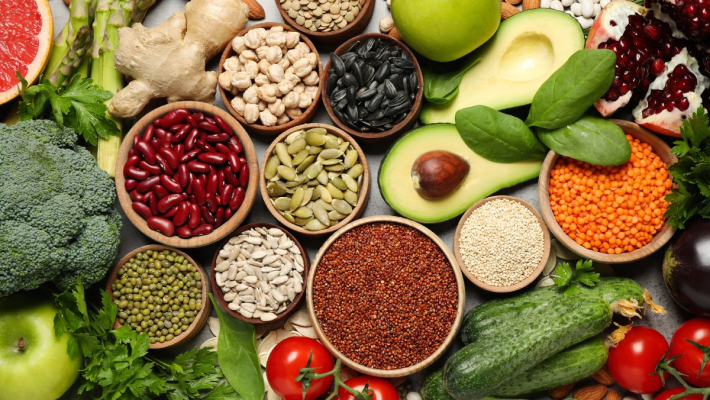Beets
- €4,95
Sweet White Beet Seeds for Garden and SaladAlbina Vereduna beet seeds offer an exceptional choice for vegetable gardens, prized for their sweet flavor and versatile use. This old Dutch variety, botanically known as Beta vulgaris,...
- €4,95
Albina Vereduna White Beet Seeds for Garden RootsDiscover the unique flavor of Albina Vereduna white beet seeds, a traditional Dutch variety known for its sweet and delicate taste, surpassing that of typical red beets. This...
- €4,95
Vibrant red beetroot seeds for sunny vegetable bedsCreate a classic beet patch with these beetroot seeds, ideal for gardeners looking for reliable performance and rich colour. This well-known Detroit 2 type of Beta vulgaris produces...
- €4,95
Colorful Beet Seeds Mix for Container GardeningDiscover the vibrant appeal of Beets Hula Hoop seeds, a delightful 4 color mix of Beta vulgaris perfect for container gardening vegetables. This salad beet mix features a beautiful...
- €4,95
Distinctive Patterned Chioggia Beet SeedsDiscover the charm of Chioggia beet seeds, an heirloom variety prized for its striking pink and white concentric rings visible in every root. These sweet beetroot seeds produce colorful beetroot varieties...
- €4,95
Early Maturing Sweet Chioggia Beetroot SeedsDiscover the unique appeal of Chioggia beetroot, an early maturing beet variety prized for its striking appearance and mild sweetness. This heirloom beet features a round red beetroot with characteristic...
- €4,95
Premium Cylindra Beet Seeds for Dark Red HarvestDiscover the rich taste and vibrant color of Cylindra beet seeds, featuring the distinctive cylindrical shape of Beta vulgaris. These dark red vegetable seeds produce mild-tasting beets with...
- €4,95
Premium Cylindra Beet Seeds for Organic CultivationDiscover the versatility of Cylindra beet seeds, an excellent choice for gardeners seeking medium-long, dark red beets with a mild flavor. This variety, known botanically as Beta vulgaris, thrives...
- €4,95
Early Detroit beet seeds for summer and autumnDiscover the Detroit beet seeds, an early beet variety prized for its large round beets with smooth, thin skin. This Beta vulgaris L. cultivar stands out as a...
- €4,95
Premium Egyptian Flat Round Beet Seeds for GardeningDiscover the vibrant flavor and versatility of Egyptian Flat Round Beet Seeds, a distinctive vegetable variety from the Beta vulgaris family. This heirloom beet variety features flat, round...
- €4,95
Premium Egyptian Round Beet Seeds for SaladDiscover the vibrant flavor and versatility of Egyptian Round Beet Seeds, perfect for cultivating a delicious root vegetable in your garden. These Beta vulgaris seeds thrive in sunny locations...
- €4,95
Nutritious Fodder Beet Seeds for Livestock FeedFodder beet seeds from the Beta vulgaris Brigadier variety produce highly nutritious tubers ideal for small livestock fodder. These beetroot feed plants offer both the tubers and leaves as...
- €4,95
Delicious Golden Beet Seeds for Outdoor PlantingDiscover the vibrant taste and color of golden beet seeds, perfect for outdoor beet cultivation from mid-April to mid-July. These sweet yellow beet seeds produce beetroots with beautiful, tender...
- €4,95
Vibrant Mixed Beet Seeds for Colorful GardensDiscover the charm of mixed beet seeds featuring a colorful blend of salad beet varieties that enhance any vegetable patch. This round beet mix includes popular types such as...
- €4,95
Premium Organic Beet Seeds for Summer CultivationDiscover organic beet seeds from the variety Beta vulgaris Detroit 2, perfect for enriching your vegetable garden with vibrant, round red beets. These certified organic beet seeds are ideal...
- €4,95
Organic Egyptian flat beet seeds for gardensBring a classic early beet variety to your plot with organic egyptian flat beet seeds of Beta vulgaris. Also known as organic beet Egyptian flat round, this traditional, open...
- €4,95
Hardy Perennial Spinach Seeds for Outdoor GardensPerennial Spinach Seeds from Rumex patientia offer a hardy leafy vegetable option ideal for gardeners seeking a fast-growing spinach alternative. This biennial beet variety produces sorrel-flavored leaves that are...
- €7,95
Premium Red Beet Seeds for Summer CultivationDiscover the benefits of red beet seeds from the Ball Detroit Bolivar variety, perfect for summer cultivation. This Beta Vulgaris cultivar produces round, vibrant red beets known for their...
- €4,95
Premium Red Beet Seeds for Summer CultivationDiscover the exceptional qualities of red beet seeds from the Beta vulgaris Ball variety, specially selected for outdoor sowing from mid-April to mid-July. This biennial root vegetable features short...
- €4,95
Premium Red Beet Seeds for Summer CultivationDiscover the benefits of red beet seeds from the Beta vulgaris Kogel 5 variety, a biennial root vegetable prized for its round, dark red roots and short foliage. This...































































































